Aspiring screenwriters want to know how to become a screenwriter. This blog post will hopefully be an in depth explanation on how to become one. I will cover how to write your screenplay, how to get a manager, how to get an agent, resources to use and screenwriting tips that can help your writing. So let’s get into this!
How To Become A Screenwriter

Knowing how to become a screenwriter is something that will greatly increase your chances of success in terms of being able to sell your screenplay. First you must plan your screenplay.
Planning Your Screenplay

Planning a screenplay isn’t child’s play; you need to be a professional to write the script. Not every writer can write a good screenplay, and you must have a thoughtful mind, lots of time, experience writing scripts, and not be intimidated to know how to plan a screenplay. It is necessary to draw a definitive, regimented structure that could be ingrained into filmmakers, producers, and audiences how the story needs to be told.
Most professional writers who are masters at writing a script and know how to format it in the present tense are still going to find themselves struggling to keep their story on target without straying away from the plot, losing attention, and writing the right length for the script. You must have all these skills before sending your mind into planning mode to write a screenplay.
Resist The Temptation To Dive In Head First

The beginners are usually impulsive and avoid too much planning of their screenplay. Sometimes they’re not lucky enough to deliver quality work through this method. You must know that an early start may halt you after thirty pages, or the script is bloated beyond usability as a result. It would help if you answered these questions regarding what to write in the first scene heading. What would be the story’s plot, characters, and story outline? The following are the guiding steps to learn how to plan a screenplay that you need to take to make it effective.
How To Plan A Screenplay: Establish Your Premise

It is the first step you would take before writing a script. So you have to plan to distill the essence of the story into a concise and easy-to-understand premise. It usually refers to loglines and contains all the essential motivating and informational writing processes. Conceptually it would be best to think about all the characters you have in mind, their settings, central conflict, and goals. It is quite logical you have to make up your mind first about what you should write about then write it.
How To Plan A Screenplay: Spend Time With Your Characters
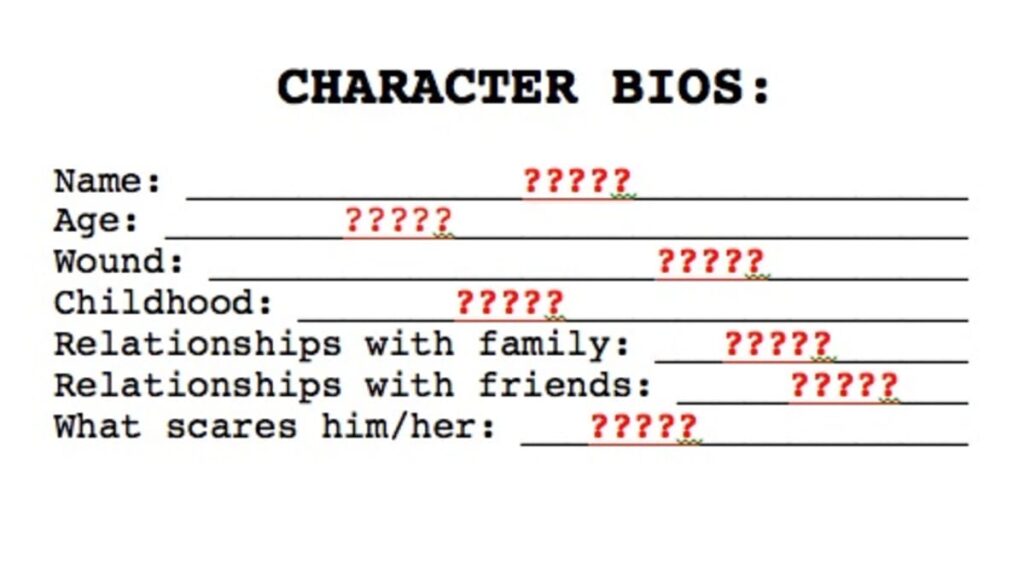
Characters drive a story to make it believable, and the dramatic interaction between them make it a great story. You have to make the characters engaging with a clear motive for everything they do. It will explain how they speak, how they interact, and what they want or carry within to establish the character.
-The character bio
It would be best to spend time thinking about your character’s biography by creating a character questionnaire to plot the story. You can find several templates online that can easily prompt the idea of physical description of the character, personal histories, and philosophies.
It will help you understand the talk, walk, behavior, attitude, and reaction through the story. Then it will be decided how to promote the physical appearance into a visual display for a film.
-The enneagram
It is another method used in planning the screenplay to make each character more real and believable. It is more helpful in creating characters than designing a character bios or finding out the thousands of articles for writing character development. You should keep in mind whatever you have drawn, the image or background material of the character doesn’t need to be written on the script or even referenced.
How To Plan A Screenplay: Outline Your Plot

There should be events and decisions about whether the story is abstract that carries your characters through the narrative as you know how it will perform when the screenplay is written with a well-constructed plot. Though it’s not a piece of work that serves itself. It’s just a blueprint of creative writing, technical specification and designed to turn into something more significant.
While planning a screenplay, you don’t need to describe the character’s inner thoughts or explain the whole story directly to the reader. An outline is a point-by-point breakdown of events around which your script will circulate, so it’s a blueprint of your blueprint screenplay. Show every objective that is necessary to display your thoughts or events in the story.
You can check the available online templates’ beat sheets’; they will work to plan the script and how to use them for your story. It’s up to you what level you will take your outline with the details as some writers stick to the major turning points or broader plot. Simultaneously, others prefer a highly-detailed bullet point approach—a screenwriter should know how to tackle it so choose your method wisely. The plot must be actionable from beginning to the end. Plan and write your script with confidence to make it believable for the producer, audience or filmmakers.
How To Write Your Screenplay

Everything about screenwriting is fascinating, but do you know how to write a screenplay? People love to share their feelings and want to get their worth for their talent. Not everyone can master this skill, but a deep and thoughtful person can utilize the formatting, binding, and screenwriting rules. It’s a passion, and you cannot succeed until you are wholeheartedly indulging in the story plot. You must have hands-on the basic elements of your first script. There are many resources available in online stores to help you get up to speed with learning how to write a screenplay.
How Does It Look?
The screenplay is an original piece of writing based on true stories or old novels, plays, or newspaper articles. A portion of writing is converted into a beautiful film or movie by producer, director, set designer, and actors that perform the screenplay or script. They all create a visual film from the writing pages, so it’s an art, and the screenwriter must be skillful to detail every role of the characters in the screenplay.
What Is The Standard Screenplay Format?
Some beginner screenwriters can get a bit scared about the script format, so they should learn to have full control over it and enough knowledge about the rules. The main points are;
-12-point Courier Font size
-1.5-inch margin on the left of the page
-1 inch on of the top and bottom of the page
-1-inch margin on the right of the page
-Each page should have approximately 55 lines
-Leave 2.5 inches from the left side of the page to start dialogue
-Character names must be positioned starting 3.7 inches from the left side of the page and have uppercase letters
-From 0.5-inch margin from the top of the page, numbers should be mentioned in the top right corner. But remember the first page must not have any number on it.
Method Of Writing A Screenplay
1. Write your logline
Logline encompasses the plot’s central dramatic question about the story, though it’s not always posed as a question. It can be changed even after you finalize the screenplay as you get deeper into the writing process. You should answer the following questions to help create a logline:
-How does your main character get involved in the story?
-What obstacles does your main character face and move the story forward?
-What is the world of your story that makes it different, interesting, or suspenseful?
Your answer must contain 50 words without using the character name; instead, use, i.e., so don’t give any spoilers.
2. Create an outline
You should mainly focus the script outline on events to create it on one or two pages like traditional outline format. You can write sentences on the index cards and post them on the wall to view them clearly if you have space. It would help if you kept in mind that your sole dramatic question should be short and confined, explaining your story’s plot line as it is known as through-line.
When you brilliantly write the basic structure, you won’t need a rewrite in the future. Every screenplay consists of three-acts, starting with the incident to conflict, struggle, then ending with change.
3. Build a treatment
Treatment means a prose version of your outline that reads more like a short story and increases the reader’s interest. Because otherwise, a dull unfinished outline won’t catch any attraction to the screenplay. It will also help you understand the story’s plot. Then your artistic vision comes into play with treatment. So build your world and characters in it to develop a beautiful story.
4. Write your screenplay
Follow the rules of writing the screenplay and work hard to achieve success by treatment of your script. You must write it in the present tense with proper formatting and don’t edit too much while writing the screenplay. Open your mind and let the ideas flow on the pages to develop a structure and then flourish.
5. Format your screenplay
You can get templates for screenwriting or scripts; there are numerous websites available to provide you format. You can use any popular script writing tool by keeping in mind the format requirements courier font 12 and 1-inch margin from all sides of the page.
6. Edit your screenplay
Writing a screenplay can be like an explosion of ideas with so much mess around, so look at the shrapnel and damage it has made and find who is dead. Working on the screenplay takes so much concern and focus, you don’t understand or realize what has happened in the back. So the editing process works like this.
The first goal of editing the screenplay is clarity, so when you get back to the writing to check it, you realize it has unfamiliar words that you have never read before. So focus on how they would affect another reader, and make it a perfect and cohesive story. Your analysis must be critical and objective, or you can give it to some trusted reader for good advice but don’t completely rely on their suggestion.
Please get to know how the editor can check the problem area and highlight it with a light marker to improve it and mark the entire script. When finished editing, it should be colorless; always consider the area where the description is sloppy or overwritten, and someone acts out of character, try the alternate way.
25 Screenwriting Tips Guaranteed To Help Your Screenplay
Learning to write a screenplay is hard but once you learn, you’ll be churning out screenplays with ease. But how many of those screenplays you’ve written are actually worthy of writing a pitch for an industry professional? You’ve maybe written a good one, but you know it could be great. You might not be sure of how to take it to the next level. If you’re wondering what you can do to improve your screenwriting skills, here’s 25 screenwriting tips guaranteed to help your screenplay
1. Get Feedback
Every writer from Quentin Tarantino, Christopher Nolan to Steven Spielberg needs feedback. As writers, we can never see our own work for what it really is. Our sight is blocked by our own bias for our own creation. We need criticism from other in order to make our work better. It doesn’t matter who reads your script as long as you’re getting feedback. When you get feedback, be sure to consider each note individually. You’re not a perfect writer and the person giving you feedback isn’t perfect either.
2. Read The Greats
Before you start hacking away at those keys, do some research. And by research, I mean reading. You’ve seen many movies in your lifetime but have you read any scripts? So make a list of your favorites, classics, or just movies similar to what you want to write and try to study them. You’ll be surprised at how much you enjoy scripts for reading pleasure and there are several floating around in cyberspace just waiting for you to get a hold of them. The Script Lab, Movie Scripts and Screenplays, Simply Scripts, and Go Into The Story are good places to find scripts.
3. Research Your Story’s World
In this context, research is about getting into the zone and feeling that world you’re about to explore. Try going to a bookstore or library for hands on research. An even better idea would be to go directly to the locations and people that are relevant to the world and subject matter that you’re writing about Whatever that world or subject matter may be, dive into it before typing a single word.
4. Feed Your Creative Mind
Too many screenwriters jump the gun and go into the screenwriting phase. Patience. With a fresh concept, you have a seed that needs to be nourished so it can grow to something great. You need to look for inspiration and context. If you’re writing a movie about zombies, you need to study up on the subgenre. If you’re writing a war drama, you need to put yourself in that world and find some tone and atmosphere to work with visually. Watching movies is a great way to feed your creative mind because it helps get you in the mood of creating.
5. Visualize Your Movie Every Day
Writing is about visualizing images and putting them together like pieces to a jigsaw puzzle. When writing a script, you can’t write a cinematic story without seeing what you’re tasked with describing. So when you’re walking, running, eating, daydreaming, be visualizing your movie playing in your head. Use the imagery and inspiration you obtained by feeding your brain through watching movies and tv shows. Take a month to do this. Develop the big moments of your story in your head. See them. Feel them. Write them.
6. Analyze Movies With A Critical Eye
Analyzing movies is something we do naturally without even knowing it. Everybody has an opinion after they’ve watched something to make judgment on whether they liked it or not. You can use this to your benefit though. Maybe there was a line that didn’t sit right with you or wasn’t believable. How would you make it better? Maybe there was a character that should have been likable but wasn’t. How would you handle that character to make them likable? Or maybe the story just didn’t work for you. What would you do to fix that and make the film better? In this case, it helps to be a critic to help the perfection of your craft.
7. Read Anything And Everything
Don’t just read screenplays. Read comics, manga, read it all. Poetry, history, science, all of it. Reading a wide array of content can help you come up with ideas for future scripts. Moreover, it’ll also help you be able to come up with the solutions on how to write your scenes, characters and plots to your stories. Reading makes it so your mind is constantly in that creative frame of mind and it just helps your brain operate quicker. Good writers read a lot.
8. Listen To Professional Screenwriters Analyzing Scripts
If you’re more of a passive learner, then just sit back and listen to the pros talk. There’s a youtube channel called Film Courage that has professional screenwriters giving interviews on the craft of screenwriting. They talk about it from every angle imaginable and there’s great advice in there for you. The best advice comes from people who have actually already done it and done it at a high level.
9. Write a Screenplay FAST
Some writers suffer from the fear of starting a screenplay; the perilous white space on the screen. There’s a ton of inhibitions that creep in about writing a screenplay. One way to kill those inhibitions is to write a screenplay fast. Writing a screenplay fast helps you write on instinct which is good because a lot of the time writers stress over what to write when deep down, they know what to write but are afraid to just do it. Writing fast forces you to cut the BS and get down to business. It puts you in a go, go, go mindset that makes you avoid procrastination. You’ll be surprised how well it turns out and if it doesn’t, that’s okay. You can go back and rewrite it.
10. Never take breaks
There should not be a single day that goes by where you’re not working on your script. If you’re able to skip a day, then you obviously don’t love what you’re writing enough and you will struggle to finish it. The only exception to this is if you experience a family crisis. If not, your butt should be hacking away at that script. Take care of your baby. You wouldn’t go a day where you don’t take care of your baby, would you? Why should your script be any different? Breaks in writing can cause you to become disinterested with your creation. A day can turn into a week and a week into months so ABW. Always Be Writing. Taking breaks while writing your script can lead to poor quality in your script. It’s very hard to take a break and try to pick back up where you left off so it’s strongly advised to never do this.
11. You must LOVE your script
Your script is an extension of you. You spend hours, days, months laboring over it and nurturing it. In a way, it’s like your offspring. The amount of love you have for your kids should be the amount of love you have for your artistic creation. Having this love will help you avoid waning passion for your script over the length of time that it takes to write it. You’d be amazed how quickly you write it when you have this kind of love affair with your work.
12. Character
Character is important because it’s who the movie is centered around. If you don’t have a good character, forget about it. People want a character they can identify with. A character that is flawed, but likable. Somebody that can get empathy and stir emotions within them. A common mistake is making a character too perfect to the point that they’re a mary sue. People can’t relate to such perfect human beings if you can even call them that since all humans are flawed.
13. Conflict
Conflict is what keeps the audience glued and engaged to the story. You must craft the conflict in your story so that the protagonist is always in the chase position. There’s something that he/she wants and the people that they interact with throw wrenches to keep them from getting it. There must also be a secondary conflict that exacerbates the main problem. By doing this, you’re able to add that hook that keeps the story going and doesn’t grow dull by the second act.
14. Plot
The amount of people that have a great idea but no plot for their story is astounding. Before writing a script, make sure you know what happens in each act of your script. It helps to at least know the climax of each act and how you plan on building up to that climax. Having an idea is less than half the battle so do your due diligence and map out the acts in your head. You’ll find that if you do this, you may not even need an outline as you’ll know what each scene is supposed to achieve.
15. Avoid Second Act Destruction
If you have an idea for a script, but don’t know how to go about writing it so that it doesn’t fall apart by the second act, the following advice will help you immensely.
When I first started writing films, I chose to write a futuristic space adventure. Guess which movie I chose to help craft my script around; Yup, Star Wars. Honestly, I’m not even a big Star Wars fan, but I chose to use it because it’s impact on pop culture and the movie industry is undeniable and I respect what George Lucas created.
So I went ahead and wrote the script, but upon completion I realized something was wrong. I found myself going back and trying to add in more scenes, but it still didn’t work as a story and I couldn’t figure out why.
I eventually moved on to writing my second script. The high I felt from completing my first propelled me through the second script and I ended up finishing it quicker than the first. The second script took influence from one of my favorite movies, Back To the Future. This is when my screenwriting method began to shape out and I started to understand how to write a story. Back To The Future is one story with two plots. Most movies use this method of story telling.
In Back To The Future, the first plot is about Marty accidentally being transported back to 1955 and he has to get back to 1985. The second plot is about his mom falling in love with him and Marty having to get his parents together so that it doesn’t ruin future events like him being born. Emulating Back To The Future helped because that second script I wrote had both an A plot and B plot. The first movie I wrote only had an A plot that I unknowingly tried to drag through out the entire script. The second script had more twists and turns in the story and was much closer to a cohesive story.
So when crafting your story, make sure there’s an A plot and B plot. You want to make it so that the B plot complicates the A plot. If Marty didn’t get his parents together, he couldn’t have gotten back to 1985 because his very existence would have ceased right there in 1955. Following the structure of Back To The Future helped me in spades by getting the second act to be as compelling as the first.
16. Make Sure The Concept Is Fresh And New
Nothing sucks more than to spend hours, days, weeks and months laboring on that script only to find out that Hollywood has already tackled that same concept. It’s helpful to do thorough research and know what’s going on so that you can avoid making this mistake. Since we all ingest the same media content, we can sometimes end up having the same ideas inspired by said content. This leads to people writing the same things. It’s imperative to do some basic google searches on the subject matter before typing a single word.
17. Choose Your Concept Wisely
You need to be diligent when developing a concept for your script. Too many screenwriters write their version of their favorite movies or they have a half baked gimmick. Writing your version of what’s come before isn’t going to attract people to your script. The half baked gimmicks aren’t enough to drive a compelling narrative for an entire story. The concept you choose has to be chosen for a reason. Maybe it’s a personal story that only you can write or maybe you’ve found a way to combine two genres into one. Whatever it is, it has to be well thought out.

18. Show Don’t Tell
Mad Max Fury Road is an example of a movie that does this well. The screenwriters didn’t write dialogue heavy scenes. Mad Max let’s the action be the main course and the dialogue be the dessert. Mad Max Fury Road was a spectacle, but no matter what you’re writing, you’ll always capture an audience with more action and less talk.
19. Write Between The Lines
When a character avoids the truth, that’s the best dialogue. This isn’t to say that the character has to lie but the dialogue can’t be on the nose. Think about Breaking Bad. How many times did Walter White say the complete opposite of what he was thinking? When the viewer gets to be in on the joke because of prior knowledge, it can be very interesting or funny watching someone lie or misrepresent their true feelings. Learning this helps you create scenes with layers that your dialogue can exploit.
20. Unique Voice
You should implement the different speech patterns, catch phrases, and the unique tempo of how people speak. If you can identify each character purely based on dialogue by covering up the character’s name, it’ll help in knowing if you’re writing a unique voice for your characters. Forcing you to think in terms of personality and motivation with each moment is one of the reasons why character archetypes are useful.
21. Don’t Say The Same Thing Twice
This is a scene from Birdman that illustrates this point.
Riggan:“Yeah, yeah sure, no not at all.”
Mike:“Okay, just stay with me….you’ve got four lines after that, that all say the same thing. “I didn’t even know the man, I only heard his name mentioned in passing, I wouldn’t know, you’d have to know the particulars…” The point is, you don’t know the guy, we f – king get it. Make it work with one line:
“I didn’t even know the man.”
Once you’ve said or shown something… move on. We get it… make it work with one line.
22. Stretch Important Information
You shouldn’t show your cards right away just because you have important information to convey to your viewer. Make them work for it. Use breadcrumbs to lead the viewer. For example, with two people in a scene, use little hints about the relationship between those two characters while also giving some backstory.
23. Show Us The Interesting Stuff
“Arrive late, leave early” is an old screenwriting tip. Basically, this means skip the pleasantries. We don’t need to start a scene with two divorcees in arbitration, like Wedding Crashers, with the clerk opening up the meeting room door, setting up chairs and filling up the water glasses. How does this relate to writing dialogue? You will quickly learn this when writing a screenplay: The extension of your scenes is your dialogue. There is a pretty good chance the accompanying dialogue won’t be much better if your scene is trudging along through some super boring situation.
24. Interrupt Other Conversations
Have you ever had your conversation interrupted by someone walking up while you were telling a secret? It makes for an entertaining scene in a compromising situation where you can stretch important information, write between the lines, and add logical conflict. You’ve now set up a perfect moment of conflict for your characters even if the interrupter immediately asks for a private conversation. Why? Because we get to see our character make decisions that we get to physically see and how they handle that delicate situation. How they handle said situation will speak volumes about that character and what they’re about.

25. Take Advantage of Every Role
Throw away characters with throw away lines should never exist. It’s self explanatory what to do with them if you do have them. Die Hard has one of the great first lines of a film:
Businessman:“You wanna know the secret to surviving air travel? After you get where you’re going, take off your shoes and your socks then walk around on the rug barefoot and make fists with your toes.”
John McClane:“Fists with your toes?”
Businessman:“I know, I know, it sounds crazy. Trust me, I’ve been doing it for nine years. Yes sir, better than a shower and a hot cup of coffee.”
Why is this great? Two reasons:
- This character never comes back, yet he has some fun dialogue, a point of view, and even a piece of helpful advice that most people would be interested to try the next time they got on an airplane.
- This interaction leads to a great piece of conflict in the film, because it is the impetus for John McClane to take off his shoes. When the terrorists burst into the party, he is forced to run away…shoeless.
Also, John is given the go ahead to tell us that he’s a cop after the businessman sees his pistol. John has a logical reason to fill us in that he’s a cop because the filmmakers show first the outsider’s reaction.
Adhering to these 25 screenwriting tips guaranteed to help your screenplay can help you take that screenplay to the next level.
3 Essential Elements Your Screenplay Needs To Get Picked Up
It can be difficult to sell your script. Many screenwriters don’t know what it takes to sell their script and thus, go in blindly. In this post, I’ll go over the 3 essential elements your screenplay needs to get picked up.
Remember this acronym; CCP. No, not Chinese Communist Party, you dolt. CCP stands for character, conflict and plot.
1. Character
Character is important because it’s who the movie is centered around. If your character isn’t good, don’t bother writing it. People want a character they can identify with. A character that is flawed, but likable. A common mistake is making a character too perfect to the point that they’re a mary sue. People can’t relate to such perfect human beings if you can even call them that since all humans are flawed.
2. Conflict
Conflict is what’s needed to engage the audience and keep them enthralled by the story. You have to write the conflict so that the protagonist is constantly in a chasing position. There’s a goal that the protagonist is trying to achieve and people try to throw wrenches in their plan to keep them from attaining it. There must also be a secondary conflict that makes the problem worse. When you do this, you’re adding a twist that drives the story forward and doesn’t die by the second act.
3. Plot
The amount of people that have a great idea but no plot for their story is astounding. Before the scriptwriting process, each act of the script must be planned out. It would behoove you to know the ending of each act and how you plan to build up to it. Having an idea is a small part of the work. Plan accordingly for the acts you are going to write. You’ll find that if you do this, you may not even need an outline as you’ll know what each scene is supposed to achieve.
5 Things Screenwriters Need To Do Before Typing A Single Word
If you’re like me, once you have an idea to write about, you can’t hardly wait to start hacking away at it. That anticipation before writing your script should be tempered because there are 5 things screenwriters need to do before typing a single word.
1. Choose Your Concept Wisely
You need to be diligent when developing a concept for your script. Too many screenwriters write their version of their favorite movies or they have a half baked gimmick. Writing your version of what’s come before isn’t going to attract people to your script. The half baked gimmicks aren’t enough to drive a compelling narrative for an entire story. The concept you choose has to be chosen for a reason. Maybe it’s a personal story that only you can write or maybe you’ve found a way to combine two genres into one. Whatever it is, it has to be well thought out.
2. Make Sure The Concept Is Fresh And New
Nothing sucks more than to spend hours, days, weeks and months laboring on that script only to find out that Hollywood has already tackled that same concept. It’s helpful to do thorough research and know what’s going on so that you can avoid making this mistake. Since we all ingest the same media content, we can sometimes end up having the same ideas inspired by said content. This leads to people writing the same things. It’s imperative to do some basic google searches on the subject matter before typing a single word.
3. Feed Your Creative Mind
Too many screenwriters jump the gun and go into the screenwriting phase. Patience. With a fresh concept, you have a seed that needs to be nourished so it can grow to something great. You need to look for inspiration and context. If you’re writing a movie about zombies, you need to study up on the subgenre. If you’re writing a war drama, you need to put yourself in that world and find some tone and atmosphere to work with visually. Watching movies is a great way to feed your creative mind because it helps get you in the mood of creating.
4. Research Your Story’s World
In this context, research is about getting into the zone and feeling that world you’re about to explore. Try going to a bookstore or library for hands on research. An even better idea would be to go directly to the locations and people that are relevant to the world and subject matter that you’re writing about Whatever that world or subject matter may be, dive into it before typing a single word.
5. Visualize Your Movie Every Day
Writing is about visualizing images and putting them together like pieces to a jigsaw puzzle. When writing a script, you can’t write a cinematic story without seeing what you’re tasked with describing. So when you’re walking, running, eating, daydreaming, be visualizing your movie playing in your head. Use the imagery and inspiration you obtained by feeding your brain through watching movies and tv shows. Take a month to do this. Develop the big moments of your story in your head. See them. Feel them. Write them.
So before starting that script, using this list of 5 things screenwriters need to do before typing a single word can help make the writing process go smoothly.
10 Screenwriting Books That Beginners Should Read
Screenwriting can be hard in the beginning if you don’t have the proper resources to learn from. The first place people turn to is the internet. The internet typically redirects people to books. But how do you know if these books are the books you should be reading? In this post I’ll break down the 10 screenwriting books that beginners should read.
1. The Writer’s Journey: Mythic Structure For Writers
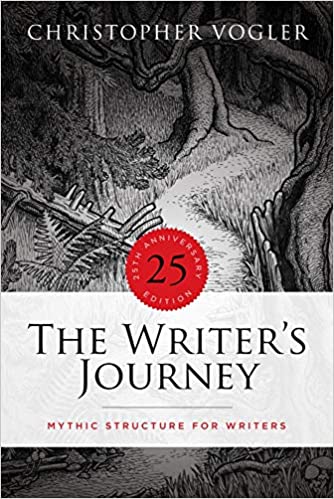
To be honest, this book is more about being a great writer than it is screenwriting. The Writer’s Journey takes Joseph Campbells famous Hero’s Journey and contextualizes it for writers. This book teaches the deep origins of storytelling and the structure that’s carried them from campfire to screen. Widely considered a classic, this book is a must read for anyone writing a hero based story.
2. The Idea: The Seven Elements Of A Viable Story For Screen, Stage and Fiction
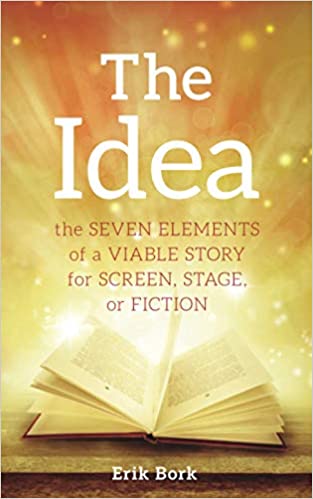
Erik Bork is a multiple time Emmy and golden globe winning writer and producer. He takes a different approach to the art of screenwriting. Bork chooses not to focus on scenes, structure and navigating the business. Instead, he believes the most important part of the process happens before any of that comes into play.
Bork’s time and experience as a screenwriting instructor has lead him to believe that it’s all about selecting that initial idea. An interesting, well thought out idea is what will convince Hollywood gatekeepers to read your script. Of course, it needs to be well written to get them to read past page ten, but it’s all about that great idea first.
3. The Art Of Dramatic Writing
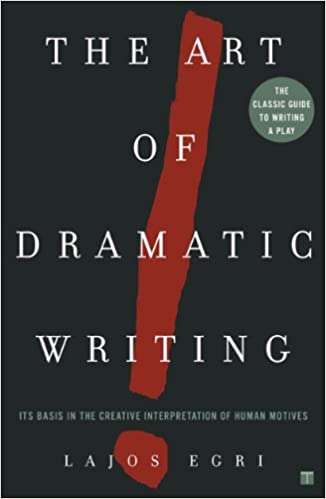
This book will set the foundation for you understanding the nature of drama. Egri breaks down the process of drama with underpinnings of story. Keep in mind, this is not a screenwriting book and it won’t teach you the finer points of how to craft the next great story. However, once you’ve read the contents of this book with examples from the great playwrights, you’ll have a better grasp of what drama is. You’ll learn how to progress a story between all the shots and set pieces. Knowing the interrelationships of character, plot and conflict will always keep your story moving forward.
4. Screenplay: The Foundations of Screenwriting
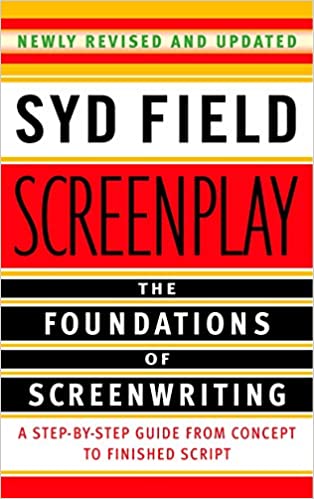
This is one of the oldest and yet, more practical approaches to screenplay theory and structure. The book delivers the meat and potatoes about the tenements of writing and laid the foundation for every book that came after it. Field knows his stuff. He’s able to show you how Jaws and Raiders Of The Lost Ark and Chinatown all operate off the same template. He breaks the template down so you understand how to write a three act Hollywood movie.
When you read this screenwriting book for beginners, whenever you watch a movie, you’ll know what act you’re inside of and you’ll anticipate how the writer will twist the story for the next act. Will it spoil the joy of watching movies? Not really. A great movie can still give you a thrill ride, but with the knowledge taught by Field, you’ll understand what’s underneath the hood of your favorite movies and how to extract it to write your own screenplays.
5. Save The Cat
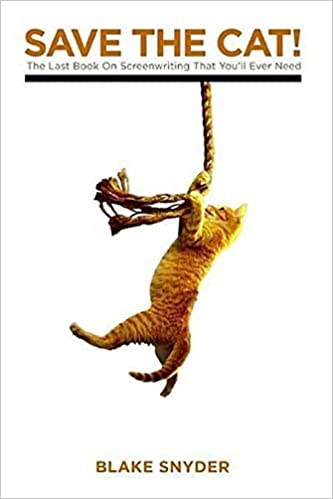
So now you understand the underpinnings of drama and you understand the basic structure of Hollywood movies. Why would you want to read Save The Cat? Snyder has sold several multi-million dollar high concept screenplays in Hollywood. This book shares what he knows about how to craft a sellable screenplay.
The philosophy in this book is based on scenes where we meet a hero and the hero does something that defines who they are and makes the audience invested in them. While there is no one formula to a successful screenplay, Save The Cat gives a great overview of potential beats that could be explored throughout the screenplay. Save the Cat breaks down structure into key plot points that can help beginners see simple story formats.
6. Story: Style, Structure, Substance, and the Principles of Screenwriting

My list of 10 screenwriting books that beginners should read wouldn’t be complete without this one. Robert McKee is an absolute God of the craft. His workshops have earned him international acclaim. He knows how to intimately inspire new voices, refine current works in progress, and put stale screenwriting careers back in the game. McKee’s book takes you step by step through his principles of screenwriting. He offers an intense learning experience, and you’ll be able to get more than just a few tips and tricks to help your screenplays. His book does a great job tracking the origins of story.
7. The Screenwriter’s Bible
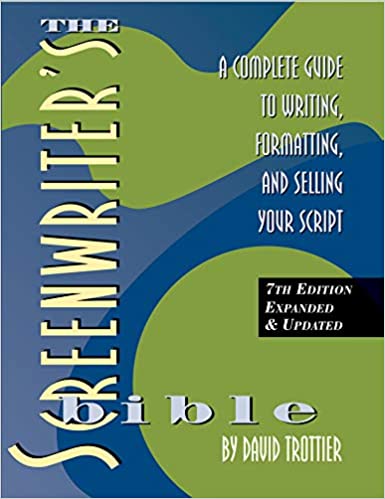
In twenty years, this book has sold thousands of copies. New writers can truly benefit from reading this book. If you’ve never seen a screenplay before, this is a great place to start. The Screenwriter’s Bible will alleviate your structure and format concerns. This book is a wealth of knowledge and practical information like sample query letters, worksheets, checklists, and sample scenes.
8. The Nutshell Technique

Callum Greene, a famous Hollywood producer said The Nutshell Technique cracks the code on why we love the movies that we love; it guides you to organically write the story you want to tell. Jill Chamberlain has worked in the industry long enough to realize that most newbie writers don’t know how to tell a story.
In order to fix that, she created the Nutshell Technique, a method where writers identify eight dynamic, interconnected elements that are required to tell a story. There are diagrams and examples of some classic and modern films including Casablanca, Pulp Fiction, Little Miss Sunshine, Juno and more. This book is so good, it’s even on the syllabus at several universities.
9. Adventures In The Screen Trade
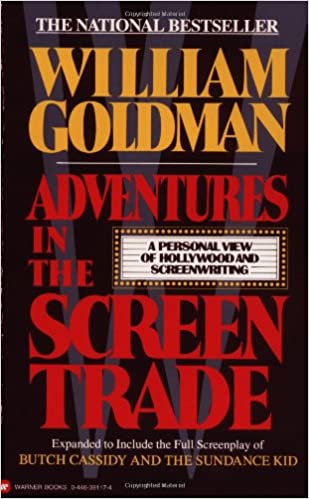
One of my favorite quotes is from William Goldman, the writer of Butch Cassidy and The Sundance Kid, All The President’s Men, and The Princess Bride. He said, “The single most important fact, perhaps, of the entire movie industry: NOBODY KNOWS ANYTHING. Not one person knows for a certainty what’s going to work.” With that said, no one knew the screenwriter’s Hollywood better than William Goldman.
He shows how films get produced and what element to include in your screenplay to make it good. This book offers a personal view of not just the screenwriting trade but working in Hollywood, so some anecdotes might be dated, but it’s an engaging read that will expand your perspective.
10. The Anatomy Of Story: 22 Steps To Becoming a Master Storyteller
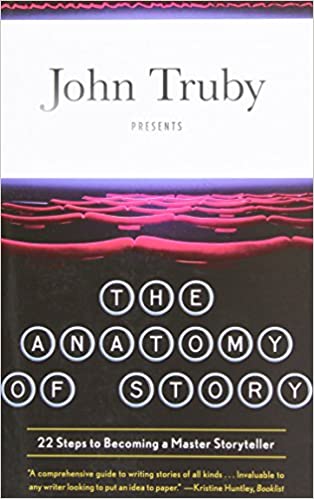
Truby’s known for his compelling screenplays and a few of Hollywood’s more successful films, including Sleepless in Seattle, Scream and Shrek. The Anatomy of Story pulls from philosophy and mythology, while giving new techniques and anecdotes that are very insightful. He has a unique approach to powerful storytelling. If you’re looking for ways on how to make your characters grow, while writing surprising plots, then this is the book for you. It’s imperative to read for all writers, including screenwriters, novelists and journalists.
If you ever need help getting started as a screenwriter, refer back to this list of 10 screenwriting books that beginners should read and you’ll find a wealth of knowledge to help you write great screenplays.
The Top 5 Best Screenplay Coverage Services
Using a screenplay coverage service is not a small decision for screenwriters. Many think screenplay coverage is not worth it. The people that offer the services are seen as writers that never made it or interns with no experience attempting to rise through the ranks of Hollywood. In addition, it can be very expensive. Even though there are some that fit this description to a T, most that offer these services don’t work like that. What is screenplay coverage? Why should you take advantage of these services? And what are the top 5 best screenplay coverage services? This blog post will help you filter out the myths about screenplay coverage and help you get your money’s worth.
What Is Screenplay Coverage?

There’s many different services with varying levels of analysis. They range from a detailed proofread to script development line by line. You need to know which service your script requires before using it.
A Script Doctor fixes a script when the original screenwriter is unavailable or can not do anymore with the script to make it better.
A Script Consultant analyzes the script line by line and gives suggestions to make it better.
A Story Analyst gives coverage, synopsis, highlight strengths and weaknesses and rate the script’s potential using a scoring system.
What You Should Expect
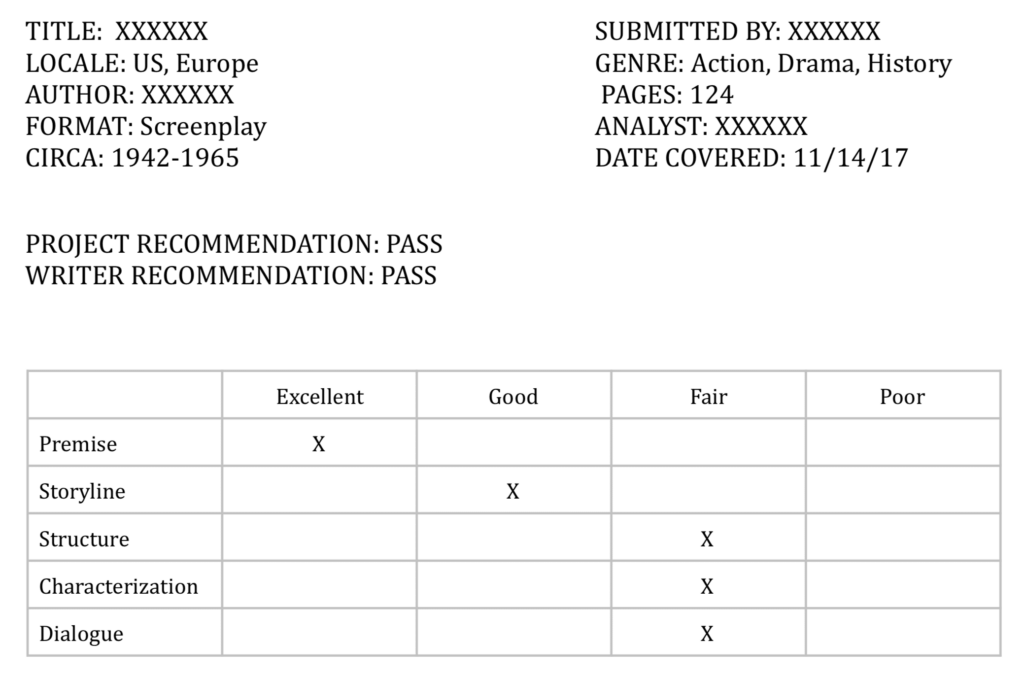
Do you know why coverage is so expensive? When you get right down to it, it takes a while to read a script, which are typically 90-120 pages. You’re also getting written analysis so it takes around 4-8 hours to do all of that. The readers that work for a company get some of the payment price. The ones that work independently are seen as cheaper because they get all of the profit.
Keep in mind that coverage isn’t consultancy. A reader tells you what’s good, what’s not, and why. What they won’t do is rewrite your screenplay and help you come up with new ideas. They’ll simply guide you to help you do these things all by yourself.
You’ll receive constructive criticism, not praise or validation. If you can’t take criticism, don’t get coverage. There are a plethora of categories such as premise, character, dialogue, market potential, structure, and pace. There might be more on some occasions depending on the depth of the analysis. This is the best way to find problems with your script. You might have a good protagonist, but the stakes aren’t big enough.
Why Get Screenplay Coverage?
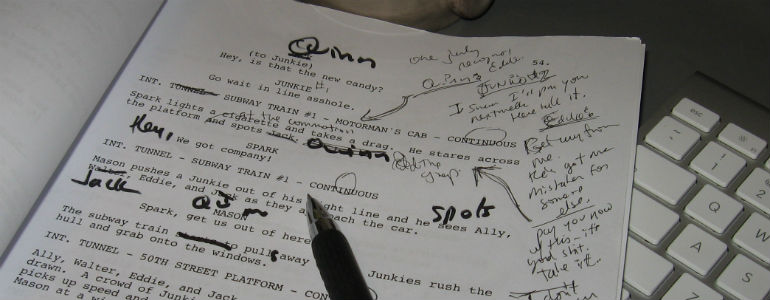
It’s difficult to look at your work objectively when you’re so close to it, which is why feedback from somebody else is essential. Coverage is that feedback from an outside source and it comes from someone that not only knows story like the back of their hand, but also the industry. Coverage gives you a chance to address the issues in your script and make it industry ready before you send it to a studio, agent or producer.
When To Get Screenplay Coverage

Don’t submit your first draft for coverage. You need to send the most polished draft your can write. This is the one you would give to industry professionals. Before paying anyone, try to get as much free coverage as possible. Be mindful of the fact that friends and family won’t be reading with an eye for structure and formatting and won’t be as forward with your work as somebody that doesn’t know you will. Another good source for feedback can be from fellow writers who would be able to pick out layout issues. A good place to go for such feedback is the screenwriting reddit. Try to submit your script into contests that give feedback.
How To Compare Coverage Services
Depends on what your script requires. You get what you pay for pertaining to cost. To keep the cost low, using a company is your best bet over using an independent professional. Using a company is beneficial since they have a large roster of readers and can do coverage quicker than a single person if time is of the essence. A fast report doesn’t mean better service though. If it’s given to you under 24 hrs., it could be a rushed job.
Read the reviews from customers. Don’t rely on the reviews on the company’s own website. Those will always be overwhelmingly positive. Do a search on the internet and ask peers for their thoughts to find out if the service is good. If the service isn’t good, they’ll let you know and won’t hold back on what they think of it.
Check the bios of the readers. Find out if they’re in the industry. Find out the length of time they’ve been working as a reader for the company. Keep in mind that you don’t need to be a screenwriter or have a produced film to be qualified as a good story analyst, the same way every great player doesn’t make a great color commentator. Make sure to check the credentials.
Shop around for the best service available. Get coverage from several places on the same script to find the best company that suits your needs and expectations. This enables you to find which readers understood your vision and which ones gave broad generalizations as opposed to pinpoint issues.
Bulletproof Script Coverage – This service is part of Indie Film Hustle and has a special approach of reading your script while keeping focus of the goal of your movie. They have three categories for their coverages; Micro-Budget, Studio Film, and Indie Film Market. The prices range from $99-£199. It takes 5 days for them to do the coverage. Your script is given to a reader with industry experience in that particular market and it also has an option to ask for the same reader for another fee.
SpecScout – Not only does this coverage service give you feedback, but you get feedback from three different readers that score your script. If you score over 75, you get to send a writer profile for free, which gets promoted to their industry pro subscribers. This service is $297 and it takes them 30 days to do the coverage. If your script is written well, you could get discovered.
Industrial Scripts – With script development as its main focus, this coverage service gives up to 12 different services to fulfill your needs. Those 12 services are Film Forensic Notes, Industry Reports, Skype Script Editing, and Standard analysis. The prices start at $125 and scripts that are approved get marketed for free on their Talent Connector. Having over 1000 verified customer reviews, it’s easy to see why I highly recommend this place.
WeScreenplay – In a hurry? WeScreenplay is without a doubt for you. It offers 72 hours for a turnaround on script coverage. They have a basic package that is only $69.99. That’s extremely reasonable. You can also get coverage on 7 scripts through their bundle packages. This offer can be used all at once or over the course of a year, which helps because you can save even more money.
Screencraft – Rounding out the list of top 5 best screenplay coverage services is Screencraft. Screencraft has a remarkable list of competitions that they run each year. It’s solely dedicated to guiding screenwriters and helping them hone their craft. Their goal is to help them get their foot in the industry. They have a total of 4 packages that range from $40-$1,095.
Do You Have To Live In LA To Be A Screenwriter?
This is a question that every screenwriter eventually asks. Hell, I’ve found myself asking it, but it’s not an easy question to answer. The reason why is because you have to ask yourself, “what do I want?” Do you want to have Hollywood make your movie? If the answer to that is yes, then going to LA will increase the chances of that happening for you. There are more people in the industry that you can network with to make that dream a reality.
Are you trying to make a living writing scripts? If the answer to that is yes, then you don’t need to go to LA to do that. Just read my post Do You Know How To Make Money Writing Screenplays where I list ways for you to monetize your writing. In my humble opinion, I think this way is more beneficial to screenwriters because it helps build value for your work. While going to LA does increase the chances of your script being made, it’s still unlikely that your script does actually get made because today’s Hollywood is more risk adverse. They’re more likely to choose the intellectual property that they can make a sound return on their investment so they look for the properties that already have a following or have already proven to be profitable.
If you plan to write in television, then being in LA is a must. There’s not way around that. That’s where the shows are filmed and that’s where the writers rooms are. If you’re a film writer, it’s not necessary to be in LA unless you plan to network. Let’s say you make a connection with a producer from where ever you live and they interested in your script. You might be expected to do meetings with other people in LA. In that case, you’ll head there to take care of that business and then leave after it’s over.
So do you have to be in LA to be a screenwriter? The short answer is, it depends. What do YOU want?
How To Get A Screenwriting Manager
We’ve all been there. You’ve finished your screenplay and you want to take the next step as a screenwriter. Then you do google searches to find out how to get a screenwriting manager. Before you get ahead of yourself, let’s cover the basics here.
What Does A Screenwriting Manager Do?

Screenwriting managers are there to help give you career advice, negotiate contracts and manage big decisions. They help you improve the quality of the drafts you write and help you decide and develop what will come next. Screenwriting managers are in for the long haul from the beginning.
Okay, so now that we got that out of the way, you want to know the nitty gritty. HOW DO I GET A SCREENWRITING MANAGER?!?! Alright, calm down. Don’t pop a vein. The truth is that there’s many ways to get one, but the first thing you have to do is make sure your writing is great. Make sure your work stands out from the pack. This would mean getting feedback on your screenplay from friends, preferably ones that work in the industry if you can. If you don’t know anyone in the industry, then try using some professional script coverage services. This will help you know what kind of shape your screenplay is in.
Don’t send a query letter to a manager before your work’s ready. If you want to get high caliber representation, then you need high caliber work that will generate that type of representation. If your screenplay’s not quite there, then it’s time to take a deep breath, slow down and continue honing your craft. Keep reading screenplays, writing screenplays and getting quality script coverage.
Write A Great Query Letter
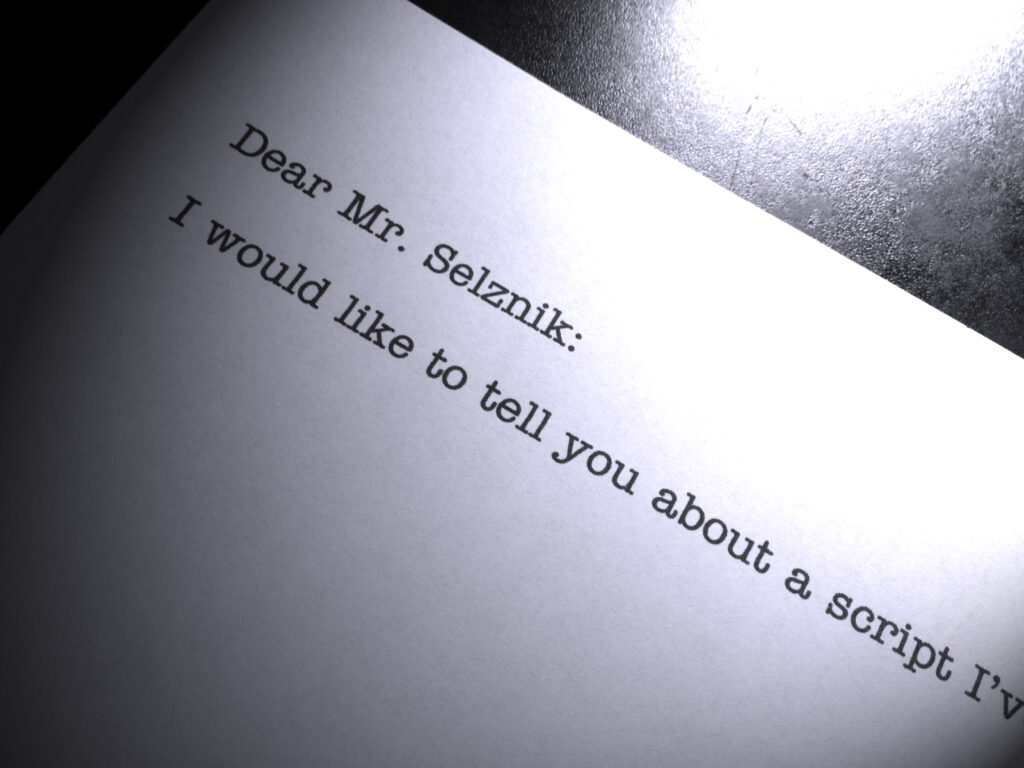
Once that screenplay is in tip top shape, then you can worry about penning a great query letter. Screenwriting managers field dozens of queries a week so the best way to stand out is clarity and brevity. Keep it short, friendly and engaging. Don’t bother mentioning accolades from unheard of screenwriting institutions and contests because they won’t care. They’re interested in the logline, short synopsis, and if you come off like an intelligent and communicative person. Here’s one of the query letters that got one of the readers at scriptreaderpro.com representation.
Screenplay query letter sample
Subject line:
Bourne-esque action thriller from a contest-winning writer.
Email body:
Dear NAME HERE,
What would you do if you saw a face on a missing person poster that looked exactly like you?
Well, that’s exactly what’s happened to Ethan Monroe—a British ex-pat who’s come to the States to start a new career.
When he discovers this poster and delves into his cloudy past, he finds holes and secrets that reveal he may not be who he thinks he is at all.
THE OSIRIS VENDETTA mixes action and intrigue with exciting, memorable characters and a twist that you will not see coming.
My last two thrillers placed highly in industry contests, with my script FERAL winning the All Access Competition.
I look forward to your request to read the script. Thanks for your time.
Scott Parisien
XXX-XXX-XXXX
The main things you want to avoid when it comes to writing a query letter is going on too long, sloppy presentation and overdoing it by giving more material like video clips, pictures or banner along with your query letter.
Seek Out People To Send Your Query Letter To

As you do your research on screenwriting managers, focus on these points.
• Genre
I recommend for new writers to stick to one genre. Look for managers who represent writers with a similar style to yours.
For example, if your niche is writing dark romantic comedies, make a list of your favorite movies in that genre. Then search for who wrote them and who they’re managed by.
• Start small
You’re probably more likely to find success with small time screenwriting managers and literary management companies with smaller client lists than the big boys of the industry. New managers just starting out on their own are more likely to be driven and hungry to find that next big breakthrough screenwriter.
You can download a list of the top 100 screenwriting managers and find which manager is willing to represent you. Every manager and management company on this list is looking for new writers. While many don’t accept unsolicited queries without a referral, many on the list do.
Included are the contact details, submission policy and size of each management company. There are a few omissions, but chances are if a screenwriting manager isn’t on the list, they’re probably focused on acting talent or operate on a freelance basis, completely separate from any Hollywood management company.
Industry Websites
IMDb pro is another place to find screenwriting managers. If you haven’t already, sign up with IMDb Pro. It has taken over from the Hollywood Creative Directory as the go to resource for screenwriting managers. You’ll find the contact details of everyone you could ever want to get in touch with, the movies they’ve worked on, are developing and the writers who are signed with them.
Referrals
You could also try befriending someone who knows one and try to get them to recommend you. If you have friends or family members with connections and are willing to go out on a limb for you, pull that trigger. Being referred to a manager or agent from someone they know and trust is the best way to get representation.
The annual Blacklist, released every December, is another great and free resource for getting screenwriting managers. You can read all of the loglines for the most popular scripts of the year, find projects that are like yours, and find the names of the managers behind each project.
Online Pitch Sites
You could also try numerous online pitch sites like the blacklist website, Stage32, and InkTip. New and hungry managers use online pitch sites like these to find all those hot screenplays that have scored highly on their charts.
Networking
For people not lucky enough to have any connections in the industry, start going to places screenwriting managers are likely to be. These places would include writers’ groups, festivals, conferences, coffee shops, bars, and gyms near agencies and companies. It’s all about putting yourself in places where you’re most likely to either meet people that work in the industry or know someone who does.
Screenwriting Contests
Screenwriting contests are also a good way to find a screenwriting manager. Script competitions that promise the winner meetings, rather than just prize money are guaranteed to put you in touch with producers, screenwriting agents and literary managers if you place highly. The Nicholl and the Austin Film Festival screenplay contest are good examples of such competitions.
The above information tells you how to get a screenwriting manager. If you follow it, you’re guaranteed to see success through determination and persistence.
How To Get A Screenwriting Agent
There are few connections more particular and nuanced than the writer-agent relationship. When is the correct time to seek a screenwriting agent, what will they handle for you, and which is the proper organization to go with? This post will tell you how to get a screenwriting agent.
Many screenwriters hope they will be discovered working with an agent. Meanwhile, others are used to forging their own partnerships and relying on their agents to write and administer the contracts. The reality is that a good agent can unlock doors for you and get you into the right rooms. They can negotiate on your behalf, but when that call arrives, you still need to do a hell of a lot of work to be ready.
Who To Contact

This is as personal as any choice that you would ever make. Many screenwriters tend to be represented with a big organization of talent and media managers. Others greatly prefer a smaller company’s boutique service that has more time to devote to their select client list. Sometimes they’ll be available for chats, updates, or even job edits. Both have advantages, so it’s time to begin to do your research.
In terms of chemistry, once you have a meeting, it is reasonably important to get along with your screenwriting agent. You need to be able to trust them. You still have to picture trusting them out there in the world to serve your interests. Take a moment to think about the kind of writer you are, but also the kind of person you are. You should be optimistic, experienced, happy to enter a room, shake hands and begin selling your scripts. If you’re these things, you will be able to get meetings from an agent who complements you, leave you to it and handle the details.
Be Honest
If you’re great in front of a keyboard, but not so confident with networking, would you be complemented and portrayed by an agent as a powerful personality or could they overpower you a little? Be truthful about yourself, be mindful of this matchmaking aspect of the equation and try and enjoy it. This could result in a lifetime relationship.
If one screenwriting agent is inquisitive about your work, then there’ll be others. Be calm, reflexive and take time to think and hash out your decision along with your Screenwriter Coach or writer friends. Don’t comply with anything at the first meeting, instead try and arrange further meetings with other agents, see who’s out there and find the proper fit. Yes,that means play the field.
What To Not Do
The biggest ‘what to not do’ seems obvious, but don’t approach agents who just don’t rep what you’re selling. If you wish to figure in TV, then you ought to contact TV agents, not film agents (or someone who does both). Think seriously about who you actually want to figure with and aim high. Do exhaustive research of which agents rep those writers you absolutely love. Look at junior agents who are into the type of thing you write, as they’ll be more likely to read your script. But be prepared for variety of rejection emails before you get a gathering – our article The Rejection Collection might help here.
Finally, your contacts among writers are going to be really helpful here. Hopefully you have got a broad cohort of writer friends that you’ve met at festivals and functions, who are of an identical level and some who are perhaps doing well and getting commissions. Always ask writer friends about their screenwriting agent – what they like, what they don’t like. And, if someone ever offers to recommend you to an agent, this can be the golden ticket. Make you’ve got a shiny, polished script ready forthis occasion.
When To Contact

Which brings us to the ‘when’. If your timing is right, you’ll bemore likely to receive a positive response. If you have a coach or a mentor, they’ll really be able to help with the when of things; when is your brilliant spec polished, but not overworked?
If you’ve already written a pair of shorts and they show you in a decent light, then a screenwriting agent is more likely to look at it than read a feature script. A reel may be a good thing to possess. If you’ve already made a firm agreement towards a collaboration and having something made, this again will help you. If you’ve got what you think to be a winning script, back it up by having a second great script in your arsenal to send. Once you get your ducks in a row, you might get some interest.
Accolades
If something you’ve written award winning scripts, you’re incrementally more likely to strike gold, based on how highly the award is regarded. A really brilliant script will get you a screenwriting agent, but it won’t even be read by the sort of agent you actually want until you’re further along in your career. Less established agents might take you on after gaining a interestat one of the festivals, but unless you actually need an agent at that time, don’t think they’re going tosimply accept your first offer.
There are good agents, and there are agents with good clients. There are some screenwriting agents who tackle clients who aren’t yet ready and so push them really hard, which doesn’t result in good feelings towards that agent likewise you as their client. As always, do your research, attempt to make the choice together with your business head on instead of from the joy of being repped. If the time isn’t quite right yet, that’s okay. Polish your portfolio for an additional month or two, give yourself a deadline and take a look at again when you’re ready. If you’re putting this off because you’re terrified of rejection, it’s time to feel the fear.
What To Contact Them With
Now you actually need to do your research. Agents are perpetually swamped with material. Reading scripts for a living means they’re adept at reading, but also specialists at filtering out which scripts they need to read. Keep your letter brief. Mention any connection you’ve got to the agent; a mutual contact or a time you’ve met them at an event. This is the reason why visiting those events is so important. Get a friend, coach, or mentor to read it over.
Speaking of which, you should even have a friend, coach, or mentor facilitate you along with your CV. Don’t be afraid! Writing a CV may be slightly intimidating when you haven’t yet notched up a stack of credits. Concisely, if you don’t have produced credits, then list your portfolio (in order of; most-developed / scripts available to read right away to least developed), a quick run down of other (non-script) writing experiences, script courses and, if you’ve got any, relevant industry experience (such as script editing).
Anything else, that demonstrates your great time keeping or team working skills is, unfortunately, irrelevant here. Include it if you want, but keep it very, very brief. If you examine your CV and you’re lacking credits, tantalizing awards, a guided portfolio that actually speaks to your career direction. Be honest. Don’t try to make your CV misrepresent you.
Quality Matters
As far as your script goes, any screenwriting agent are ready to tell you that the quality of entry level scripts has risen phenomenally over the previous couple of years. Writers are more sophisticated and are really making the most of coaching and competitions and internet resources. Not only does your script have to be brilliant, but it must be formatted and spelled correctly. Don’t worry if this is often not your forte, but do find someone to assist you with this. Most importantly, you absolutely must follow the principles of every specific agent and their agency.
Formatting
The agency will tell you the way they require the file formatted and labeled, whether or not they will read treatments, one pagers, ten pages or full scripts. They will specify genre, style or what they’re currently trying to find or now not reading. They will be absolutely specific and unless they contact you and ask you to send everything you’ve got (which is rare), only send precisely what they ask for.
Any deviation from which will not be seen as witty or extra or clever, but disrespectful of their very precious time. So don’t waste all of the valuable time you’ve spent on your very precious projects, by sending them in a very way they’ll be poorly received. Agents are people too. It’s important to remember that, whether or not your script is objectively brilliant, an agent may not prefer it or won’t want it immediately. When you ask someone to read your work, you’re actually asking an enormous favor, so be polite and respectful.
Your faith in your work is very important, but they’re taking a leap of faith. If they attempt to sign you, they’re taking the risk, not you, so have an appreciation of this. However, you may have value. You’ve dedicated time and energy to your work, so your work has value. If you’re at the point of getting interest and perhaps getting work, you’re on the brink and an honest investment for your agent, so have faith in your worth too. Balance is everything.
Make Query Phone Calls
It used to be common to send out queries, then emails. Finding an agent’s assistant’s email address is straightforward and there’s little stress clicking the send button. But it’s just as easy to seek out that assistant’s office number, too. Only a few people make phone calls anymore so this can be an opportunity for you to stick out. You won’t be ready to get the assistant on the phone your first try so try some times (1:00 PM to 2:00 PM PST is that the industry standard lunch break, so avoid calling then).
If you are going to get them on the phone or are forced to depart a message, the key is expressing your passion for your project while sounding like a sane adult. Make an argument on why the story in your screenplay is the most gripping, relevant or funniest story of the year and you’ll get some interest. If you’re leaving a message, leave your signal and your email address, as they’re more likely to email you back.
Attend Screenwriting Conferences And Summits

Some of the best conferences like Story Expo (held in the big apple and LA six months apart), Toronto Screenwriting Conference and ScreenCraft Writers Summit, invite successful screenwriters, literary agents and managers to administer talks and be available to answer questions. These events are set during a far more casual environment than most industry events, therefore the odds of walking up and introducing yourself to a literary manager at one of these events are in your favor.
Stunt Marketing
What is stunt marketing? It’s promoting your script in an exceedingly clever way that hasn’t been done before. Billy Domineau wrote a Seinfeld spec called “Twin Towers” about 9/11 that went viral and landed him employment on Family Guy. Henry C. King purchased billboards near Sony in Culver City and in Studio City near Universal Studios directing anyone interested find his script on blcklst.com. These methods are unconventional so do your research before spending any money.
Following this advice is sure to help you navigate how to get a screenwriting agent.
5 Ways To Sell Your Screenplay
So you’ve finished your screenplay and you want to sell it. PUMP THE BRAKES! There is a question that you must ask yourself before you attempt to sell your screenplay. That question is, “why should anybody buy your screenplay?”
The very idea of buying anything is based on the premise that something has value. What makes your screenplay valuable? A good story is a dime a dozen. What screenwriters don’t realize is that selling their screenplay has more to do with what they’re doing to market their screenplay. Here are 5 ways to sell your screenplay.
1. Start a Magazine
Take your script and make a magazine out of it. It doesn’t have to look exactly like Rave Scripts but it has to feature your writing to build a following for your screenplay. How does this help you sell your screenplay? Well, Hollywood likes money. They stand a better chance of making more money from intellectual properties that already have huge followings than properties that don’t.
2. Be a Youtuber
Your youtube channel doesn’t have to be about your writing 100% of the time. It doesn’t hurt to be diverse in the topics that you discuss, but make sure to draw viewers to your screenplay in some type of way. Ever wonder why people buy expensive products from celebrities? The people that buy those products aren’t interested in the product alone. They’re interested in the person that’s selling it. If they like you, they might be willing to invest time or money on whatever you’re selling. YouTube is a great way to not only build a following for your product but also a following for yourself. Think of yourself as a brand that you’re trying to market.
3. Use Instagram to Promote Your Screenplay
Check out www.instagram.com/ravescripts. If you scroll through the pictures, you’ll find some posts that feature some dialogue from a few of my scripts. Instagram is a great way to promote your screenplays and tease some of them at the same time giving people some of the best lines. Think of it like a trailer but without the visual.
4. Create Merchandise for Screenplays
A great way to market your screenplays is to create merchandise for it. Whether it’s toys, shirts, hats, puzzles, there are multiple things you can create to market your screenplays. If you choose to go the toy route, there are indie toy creators that can help lend a hand towards creating your toy. Creating merchandise helps familiarize people with the property that you’re trying to promote. If they’re not interested in the story, they might be interested in the merchandise that is based off the story.
5. Start a Podcast
Starting a podcast works in the same way a youtube channel does. The idea is to get people to like you first in order to get them interested in what you created. I imagine most screenwriters are more introverted than extroverted. A podcast allows you to hide your ugly mug (kidding) and speak about various topics in anonymity. Throw in plugs for your work to draw listeners to your screenplay.
These are all great ways that can help you build value for your screenplay that can greatly increase your chances of selling it.
Hopefully, you know how to become a screenwriter now. Go forth and prosper.
Related:


Leave a Reply